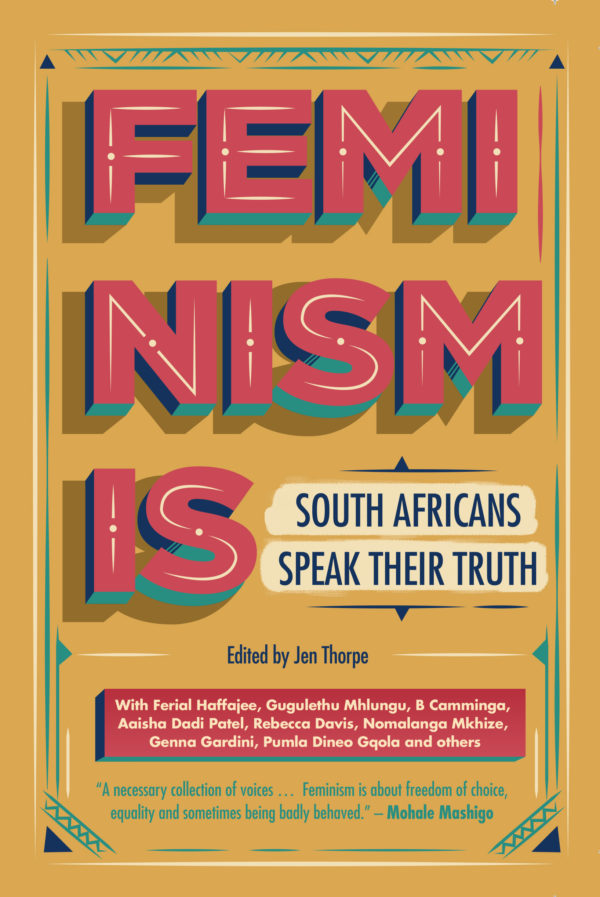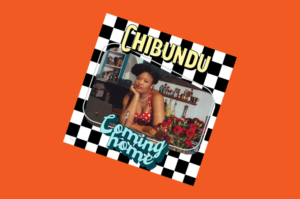
In the era of #metoo and #timesup, we are, more than ever before, in need of writing that deepens our understanding of feminism and the female experience.
Women writers are stepping up to the task, spearheading all kinds of literary projects centered on exploring all the complexities of gender inequality while proposing strategies for resistance and survival. Feminism Is, a collection of essays edited by South African poet Jen Thorpe, falls easily into this category. The collection assembles writings by 31 South African feminists who lovingly and insightfully dissect every aspect of feminist ideals and the politics they inspire. The collection was published in February 2018 by an all-women’s team at Kwela Books.
Thorpe is not a stranger to the Brittle Paper community. Four of her poems have been published here within the last few years. She is also well-known in the African literary community. Her novel The Peculiars was longlisted for the 2016 Etisalat Prize for Literature. Four years before, she edited a collection of stories exploring women’s experience with sex and sexuality. Thorpe is known her commitment to engendering conversations and reflection on the issues that are most pressing for women today.
She reveals on her website that she was drawn to the Feminism Is project because of its contemporary relevance. But the idea for the project was inspired by a panel at the 2016 Open Book Festival. Panelists Yewande Omotoso, Pumla Dineo Gqola, and Nnedi Okorafor said things that had Thorpe thinking of the need to create a space where women could share experiences while working out the complexities of the concept of feminism. The outcome of this aspiration is Feminism Is, a work that explores feminism from multiple perspectives—“motherhood, joy, feminist inclusions and exclusions, language, equality, climate change, rage, and feminist inspiration.”
If there is one truth that has come out of some of the recent debates on feminism it is the fact that feminism can be vastly different depending on who has what stake in it. As Thorpe points out in the book’s introduction: “Feminism doesn’t mean the same thing to all people.” It is a “contested space.” Feminism will not always “meet everyone’s expectations.” The lives of women are staggeringly diverse, and there are multiply layers to the contexts that shape their lives. The beauty of a collection like this one is the fact that it begins with the brilliant assumption that the so-called quarrel over what feminist means is one of the forces that keeps women together and produces the passion they need to organize and lead each other to a place of joy and power.
The book is divided into five sections that cover everything from inspiration to practice. Readers are in for a treat. The collection features established feminist voices such as Pumla Dineo Gqola, Colleen Higgs, Kagure Mugo, Aaisha Dadi Patel, Gugulethu Mhlungu, and many more. Be prepared to be inspired. Some pieces will read like feminist anthems, designed to inspire the reader towards a feminist consciousness. Others explore the intimate layers of gender roles, women’s bodies, memory, etc . The last section features pieces geared towards practice and suggests ways in which feminism can inform aspects of lived experience. Readers will come out of reading this book moved but also sure-footed about why the world, more than ever, needs a cause dedicated to drawing attention to gender inequality while organizing women to seek redress and empower each other.
While the focus of the book is on feminism in South Africa, the takeaways have universal application. The book reopens and extends some of the big questions we’ve always asked about women’s experience—questions about gender roles, equality, intersectionality, trauma, organizing, etc. But more importantly, the South African focus of the book, if anything, clears out a space where the question of feminism can be posed, first and foremost, as an African question. A project like this allows us to block out, if only momentarily, the noise of that strain of feminism designed by and applicable only to western contexts. When all is said and done, however, what makes this collection so powerful is that it invites women the world over to draw inspiration from South African women’s experiences and their unique take on what feminism is.
The book was published back in February, so it is very much available. Simply contact your favorite bookstore in South Africa to get a copy or order the Kindle edition here.









COMMENTS -
Reader Interactions